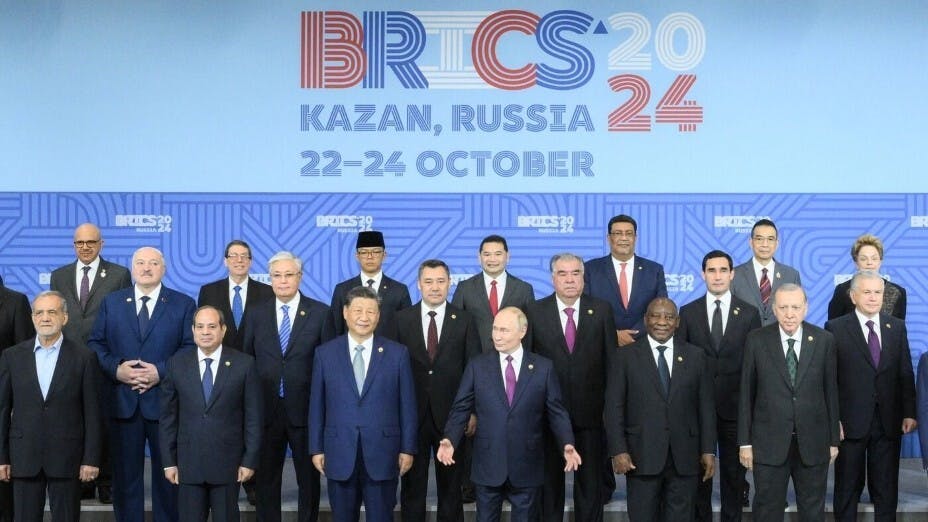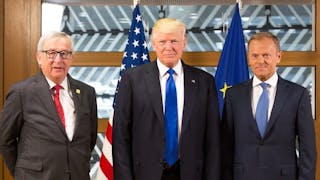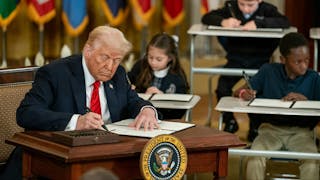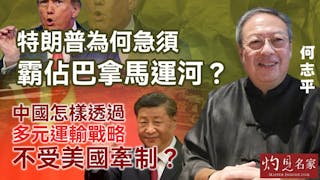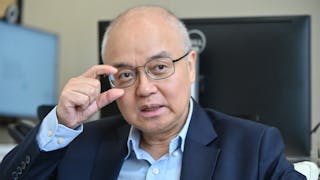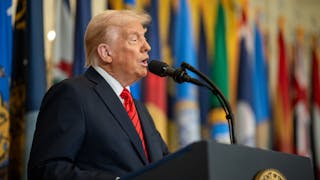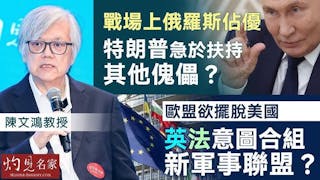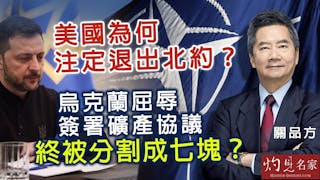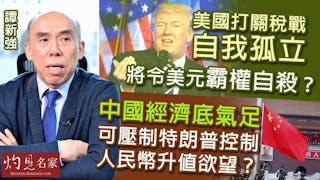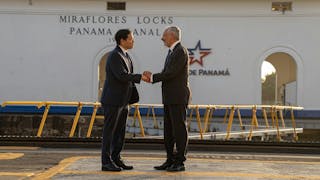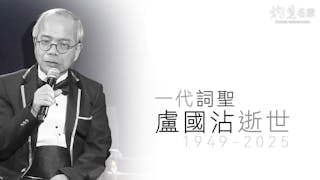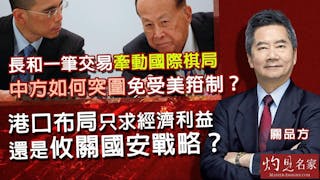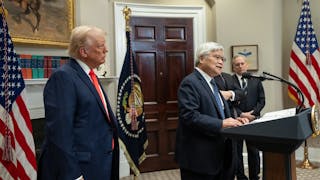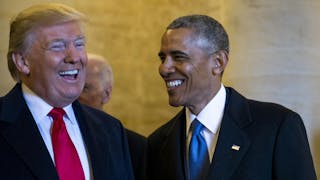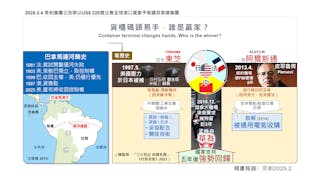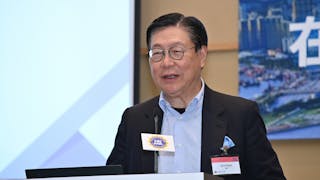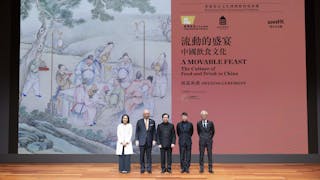2024年10月22日至24日,中國國家主席習近平率領中央政治局常委蔡奇、外交部長王毅等代表團出席金磚國家領導人第15次會晤,並於10月23日發表重要講話,闡述了中國對多邊主義、世界和平和發展的立場。
首先,習近平歡迎埃及、伊索比亞、伊朗、沙特阿拉伯、阿聯酋等新成員加入金磚國家的陣營。他表示,金磚國家成員的擴容是其歷史上的「重大里程碑」,也是國際形勢演變中的標誌性事件。
顯然,中國熱切希望看到金磚國家的擴大,將其視為推動多邊主義和南南合作不可或缺的元素。正如習主席所言:「當前世界進入新的動盪變革期,我們面臨着決定未來的關鍵抉擇……我們要共同努力,把金磚國家打造成加強全球南方國家合作的主要平台,以及推進全球治理改革的先鋒」。
其次,習近平呼籲成員國致力維護和平和安全。習近平表示,必須堅持3個原則:戰場不外溢、戰事不升級、各方不拱火,從而「使局勢迅速降溫」。他指出,黎巴嫩爆發了戰爭,必須推動立即停火,以結束有關人民的苦難,並就巴勒斯坦問題提出長久解決方案。
此外,他呼籲金磚國家改革國際金融架構,深化財政金融合作,透過擴容新開發銀行提高金融安全。有觀察家已經看到了金磚國家去美元化的趨勢,就是在不親美國家之間盡量減少在經濟交易中使用美元,但金磚國家要實現去美元化的目標還需要相當長的時間,因為其成員國數量仍有待進一步擴大。
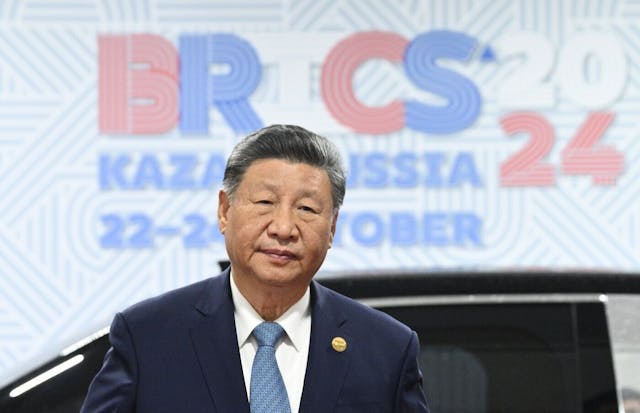
拒絕霸權主義 建立多極世界
中國參與金磚國家集團具有重要政治意義。首先,中國致力於實現世界和平與永續發展,即建構帶有社會主義基調的人類命運共同體。這種社會主義和平的願景和使命拒絕霸權主義,並支持一個不可或缺的全球南方合作的多極世界。因此,中國將金磚國家視為一個重要的國際組織,可以進一步擴容,納入更多全南方國家,進而打破全球霸權主義鏈,平衡親美政治、經濟、軍事聯盟的力量。
其次,儘管中國呼籲各方在中東和烏克蘭的爭鬥中停火,但普京總統領導下的俄羅斯卻不為所動。當習主席發表有關必須結束烏克蘭危機衝突的言論時,普京的表情顯得嚴肅而冷漠。當普京熱衷於擴張領土並緬懷昔日大俄羅斯的歷史輝煌之際,中國試圖在烏克蘭問題影響俄羅斯的機會微乎其微。
當前世界和平問題的癥結在於,世界分為兩大陣營,一邊是美國及其盟友,一邊是俄羅斯及其堅定支持者。據報道,北韓最近派遣1.2萬名軍隊協助俄羅斯參與烏克蘭戰爭,引起美韓關注。事實上,北韓對烏克蘭戰爭的任何參與都會使國際政治複雜化,特別是南北韓之間持續且日益緊張的局勢。
身處於南北韓、美俄的夾縫之間,中國面對外交壓力愈來愈大,它一方面反對美國霸權主義,也避免與俄羅斯走得太近。儘管中國與俄羅斯建立了緊密的經貿關係,但北京仍保持謹慎態度,避免予人與莫斯科過於接近的印象,特別是在美國10月份對兩家中國無人機供應商及其所謂的俄羅斯合作夥伴實施制裁。儘管如此,美國對中國的不信任,已經令雙方關係進一步惡化。
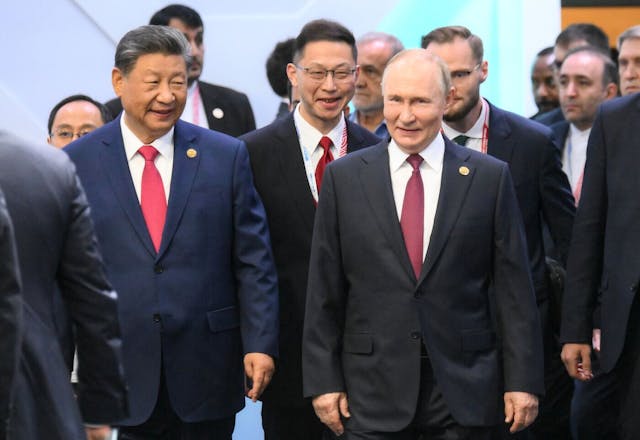
去美元化目標仍遙不可及
第三,中國呼籲透過金磚國家的經濟合作建立新的金融架構是很自然的事,但除非南半球有更多發展中國家加入金磚國家,否則去美元化的目標將很難實現。鑑於美元作為國際經濟交易的便利手段,其受歡迎程度和巨大重要性,美國的經濟霸權不易受到動搖。俄羅斯總統普京近日表示,俄羅斯「不拒絕」、「不對抗」美元。2023年底,印度表示與美元脫鈎不符合其經濟利益。因此,中國呼籲透過金磚國家建立新的金融架構,至少在中短期內仍是遙不可及。
第四,中國一直把金磚國家當作重要的外交政策平台,推動對更多南方發展中國家的統一戰線工作。贏得更多發展中國家的民心是中國的外交政策目標,而金磚國家是實現這一目標不可或缺的平台。同樣,中國也將上海合作組織、中非合作論壇、中拉共體論壇等其他國際組織視為北京推動多邊主義外交政策議程、贏得更多世界朋友的重要平台。
綜上所述,中國參與金磚國家具有重要的政治意義。它代表了中國透過與金磚國家創始成員和新成員的積極接觸,實現世界和平、深化永續發展、建構人類命運共同體的政治意願。中國渴望透過金磚國家的支持,特別是與中國合作領導和平之友小組處理烏克蘭危機的巴西的支持,促進中東和平和烏克蘭危機。
金磚國家可以像中非合作論壇、中拉共體論壇等國際組織一樣,為中國贏得更多南方國家的民心提供不可或缺的國際組織平台。在國家衝突不斷升級、政治動盪加劇的年代,特別是在中東局勢、烏克蘭戰事不斷加劇的背景下,中國同南方國家為促進世界和平所做的巨大努力具有重要的政治意義。
China and the BRICS
China’s President Xi Jinping and his delegation, including Politburo Standing Committee member Cai Qi and Foreign Minister Wang Yi, participated in the 16th summit of BRICS from October 22 to 24, 2024 during which he delivered a speech that outlined China’s position on multilateralism, world peace and development.
On October 23, President Xi delivered his important speech that carried seven main points.
First, he welcomed the new members joining BRICS, including Egypt, Ethiopia, Iran, Saudi Arabia, and United Arab Emirates, apart from the founding members of Brazil, Russia, India, China, and South Africa. President Xi added that the expanded composition of BRICS represented a “major milestone” in its history and “a landmark event in the evolution of international situation.”[1]
Obviously, China is keen to witness the expansion of BRICS membership as an indispensable element in its drive towards multilateralism and south-south cooperation. As President Xi said: “As the world enters a new period defined by turbulence and transformation, we are confronted with pivotal choices that will shape our future … We must work together to build BRICS into a primary channel for strengthening solidarity and cooperation among Global South nations and a vanguard for advancing global governance reform.”
Second, the Chinese President appealed to the member countries to be committed to preserving peace and security. He said: “Only by embracing the vision of common, comprehensive, cooperative and sustainable security can we pave the way for universal security.” President Xi added that the Ukrainian crisis persisted, and as such, both China and Brazil and other countries in the global south initiated a group of Friends for Peace to deal with the crisis. Three principles, according to Xi, must be upheld: no expansion of the battlefields, no escalation of hostilities, and no fanning flames so that there will be a “swift de-escalation of the situation.” He pointed to the emergence of the war in Lebanon and to the necessity of promoting an immediate ceasefire to end the sufferings of the peoples concerned and to reach a lasting resolution of the Palestinian question.
Third, President Xi appealed to BRICS countries to continue to innovate as pioneers of high-quality development, innovative technology, and industrial transformation. China has launched a Sino-BRICS Artificial Intelligence Development and Cooperation Centre, deepening collaboration with BRICS countries in the process of technological innovation. Furthermore, China will also set up a BRICS Deep-Sea Resources International Research Centre, a China Centre for Cooperation on Development of Special Economic Zones in BRICS Countries, a China Centre for BRICS Industrial Competencies, and a BRICS Digital Ecosystem Cooperation Network. In short, China embraces the BRICS countries in the process of upgrading high-quality development. It is keen to share its reform experiences with other member states, creating a win-win situation in technological, maritime, economic, industrial, and ecological development.
China is keen to witness the expansion of BRICS membership as an indispensable element in its drive towards multilateralism and south-south cooperation
Fourth, the Chinese President appealed to BRICS countries to work together in the promotion of not only sustainable development in the form of manufacturing and using electric vehicles, lithium batteries and photovoltaic products, but also global green development in terms of the usage of clean energy, the acceleration of green mining, and the utilisation of green industries in the production chain.
Fifth, President Xi remarked that BRICS should be committed to justice and to reforming global governance. Global governance reform is guided by the principles of fairness, justice, openness, and inclusiveness, according to Xi. As such, he hopes that BRICS will continue to embrace more countries to join this international organisation in the common pursuit of multilateralism, peace, and sustainable development.
Sixth, he appealed to BRICS to reform the international finance architecture, deepening fiscal and financial cooperation and improve financial security through the expansion of the New Development Bank. Some observers of BRICS have already identified a trend of BRICS in the process of de-dollarisation, namely the minimisation of the usage of the US dollars in the economic transactions between countries that are by no means pro-US. Still, it takes an extraordinarily long time for BRICS to realise this objective of de-dollarisation, because BRICS memberships remain to be expanded and improved further.
Seventh, President Xi hoped that BRICS would continue to be committed to fostering people-to-people exchange so that the spirit of inclusiveness and harmony can and will be cultivated among nations and civilisations. Cooperation through sports, education, arts, and cultures represent the area that BRICS countries can and should do more. In 2023, President Xi proposed an idea of setting up the BRICS digital education cooperation. From 2024 onwards, according to the President, China will open ten learning centres for BRICS stats in the coming give years, and it will train up to 1,000 local education administrators, students, and teachers. This way, the Global South will be able to build “a community with a shared future for mankind.”
After President Xi delivered his speech on October 23, the Chinese Foreign Ministry spokesman Lin Jian supplemented the president’s remarks, adding that China is keen to promote an immediate ceasefire and an end to the killings in the Middle East and the Ukrainian crisis. Lin Jian also said that President Xi met Indian Prime Minister Narendra Modi, and that both sides reached important mutual understanding on the development of Sino-Indian relations, especially their border dispute. Lin added that both sides agreed to manage their relations from a strategic and long-term perspective, and that both China and India can and will contribute to regional peace and multipolarity in the world.
China’s participation in BRICS is politically significant. First, China’s drive toward the achievement of world peace and sustainable development carries its socialist tone, namely the establishment of “a community with a shared future for mankind.” This socialist and peaceful vision and mission rejects hegemonism and supports a multipolar world in which the Global South cooperation is indispensable. As such, China sees BRICS as an important international organisation that can be expanded further to include more countries from the Global South, thereby breaking the chain of global hegemonism and balancing the power of the pro-US politico-economic-military alliance.
Second, although China appeals to BRICS member states and other countries in the world to stop fighting in the Middle East and in the Ukrainian crisis, Russia under the leadership of Vladimir Putin remains unmoved. When President Xi made remarks on the necessity of terminating conflicts in the Ukrainian crisis, President Putin appeared to be stern and disinterested in his facial look. China has attempted to influence Russia over the Ukrainian crisis, but its influence remains minimal especially at a time when Putin is keen to expand its territories and nostalgic of the historical glory of the Greater Russia.
The crux of the current problem in world peace is that the world is divided into two blocs, with the US and its allies on one side, and Russia and its staunch supporters on the other side. It was reported that North Korea has recently sent 12,000 troops to assist Russia in the Ukrainian war, raising the eyebrows of the US and South Korea. Indeed, any participation of North Korea in the Ukrainian war will complicate international politics, especially the ongoing and increasing tensions between North Korea and South Korea.
Sandwiched between North Korea and South Korea, and between the US and Russia, China’s foreign policy is increasingly under stress as it opposes US hegemonism on the one hand and yet avoids being too close to the Russian side on the other. Although China under Xi Jinping has developed close relationships with Russia economically, Beijing remains cautious to avoid creating an image that it is too close to Moscow, especially as the US in October imposed sanctions on two China-based drone suppliers and their alleged Russian partners. The Chinese side denied such linkage with the Russians and maintained that China had been overseeing the export of military products responsibly. Still, the US distrust of China has soured their relations, while trying to prevent China from being too close with Russia militarily.
Winning the hearts and minds of more developing countries is the foreign policy objective of China, which finds BRICS as an indispensable platform to achieve its goal.BRICS can provide an indispensable platform of international organisation for China to win the hearts and minds of more countries in the Global South
Third, the Chinese call for a new financial architecture through the economic cooperation of BRICS is natural, but it will be difficult to achieve the objective of de-dollarisation unless more developing countries in the Global South will be going to join BRICS. The economic hegemony of the US cannot be easily challenged in the world, given the popularity and immense importance of the US currency as a convenient means of international economic transactions. Russian President Putin has recently said that Russia is “not refusing” and “not fighting” the dollar. Cross-border bank clams and business transactions among BRICS countries will accelerate and broaden the usage of their own currencies, but the process of de-dollarisation is destined to be slow. In late 2023, India indicated that it was not in its economic interest to decouple from the US dollar. As such, China’s call for the new financial architecture through BRICS remains a bridge too far at least in the short and medium term.
Fourth, China has been utilising BRICS as a crucial foreign policy platform to propel its united front work on more developing countries in the Global South. Winning the hearts and minds of more developing countries is the foreign policy objective of China, which finds BRICS as an indispensable platform to achieve its goal. Similarly, China sees other international groupings, like Shanghai Cooperation Organization, the Forum on China-African Cooperation, and China-CELAC Forum as important platforms through which Beijing pushes forward its foreign policy agenda of multilateralism and wins more friends in the world for the sake of achieving “a community with a shared future of mankind.”
In conclusion, China’s participation in BRICS is politically significant. It represents China’s political will of achieving world peace, deepening sustainable development, and building up “a community with a shared future of mankind” through active engagement with not only the founding members of BRICS but also its new members. China is eager to promote peace in the Middle East and the Ukrainian crisis through BRICS support, notably Brazil which has cooperated with China to lead the Friends of the Peace Group on the Ukrainian crisis.
BRICS can provide an indispensable platform of international organisation for China to win the hearts and minds of more countries in the Global South, like other international groupings such as the Forum on China-African Cooperation and China-CELAC Forum. During an era of increasing political turbulence and escalating intra-state conflicts, especially as the situation in the Middle East and the Ukrainian war is aggravating, China’s tremendous efforts at promoting world peace with countries in the Global South is politically significant, prominent, and meaningful.
原刊於澳門新聞通訊社(MNA)網站,本社獲作者授權轉載。(原文按此)



